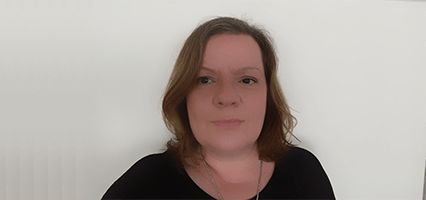Breast Cancer – My Journey
Hi, I’m Tracey. I am a Breast Cancer survivor. I have been in remission for 1 year and 8 months and I was diagnosed with Grade 3 aggressive Breast Cancer on 14th August 2019.
As October is Breast Cancer Awareness month, I wanted to share my journey with you in the hope that if you feel something isn’t quite right for you or the people you support you will be inspired to get checked out, or support someone else to do so.

Breast Cancer Awareness Month is a reminder for me that we need to vigilant for those we support. If we are not able to physically check those individuals, do we know what to look for?
As an area manager for Dimensions, I arranged for a breast care nurse to come in and give a talk to colleagues to raise awareness about what we could look out for and how to encourage women we supported to be breast aware. This is incredibly important.
As professionals and individuals, there are some key factors we need to be aware of. Family history was a huge factor in my own breast awareness and because of family risk I had annual mammograms until I turned 50. But for the people we support, this family history is often lost and many women with a learning disability and/or autism do not have regular health screenings.
How can we change that and prevent death through early detection? This is something I hope that we can continue to discuss and address through Dimensions’ #MyGPandMe campaign.
Like many others I ignored those early niggles and only mentioned my worries at a routine GP appointment. Then came the roller coaster of emotion as I received and waited for my appointment at the local breast clinic two weeks later. I knew the clinic well, but I saw a breast care nurse I didn’t know, and it felt very clinical. I wonder, would she have been kinder or more compassionate if I had a disability?
The nurse decided that she couldn’t feel anything and dismissed my concerns. This is where I wish I’d spoken up, but my fear quietened my voice.
I went along for my mammogram the end of July 2019. I then had an ultrasound scan, core biopsies and a Stereotactic biopsy. What I have learnt is that when we support people with procedures like this we must look out for signs of pain, fear and discomfort.
But we also need to think about how we can support people when talking about breast cancer. Our son, Elliott, has Autism and he and I used to wrestle a lot as part of his sensory release routine. When I got home, he wanted to wrestle, but I couldn’t. After the stereotactic biopsies, l couldn’t wrestle for a week.
Choosing our words carefully around those we support is key to acceptance and hope. We told Elliott about my lump but we didn’t use the word cancer. He called the lump Vladimir Lenin – a Russian Politician he had heard about from Horrible Histories.I had a right-side Mastectomy on February 11th 2020 and I surgery again 10th November 2020. I am still in pain and have restricted arm movement. Now, I can wrestle but not very often. So, there are many things to consider when supporting a person after surgery, especially for people who have sensory sensitivities and around monitoring of the site, which is something we should all talk about more.
Since the end of my treatment, I have had two scares. When people say Cancer is a life sentence it is not said lightly – us survivors are forever changed. Being surrounded by people who care for me, respect me and are open with me was so important, making light of the things that are different helps me to stay positive and in the light.



